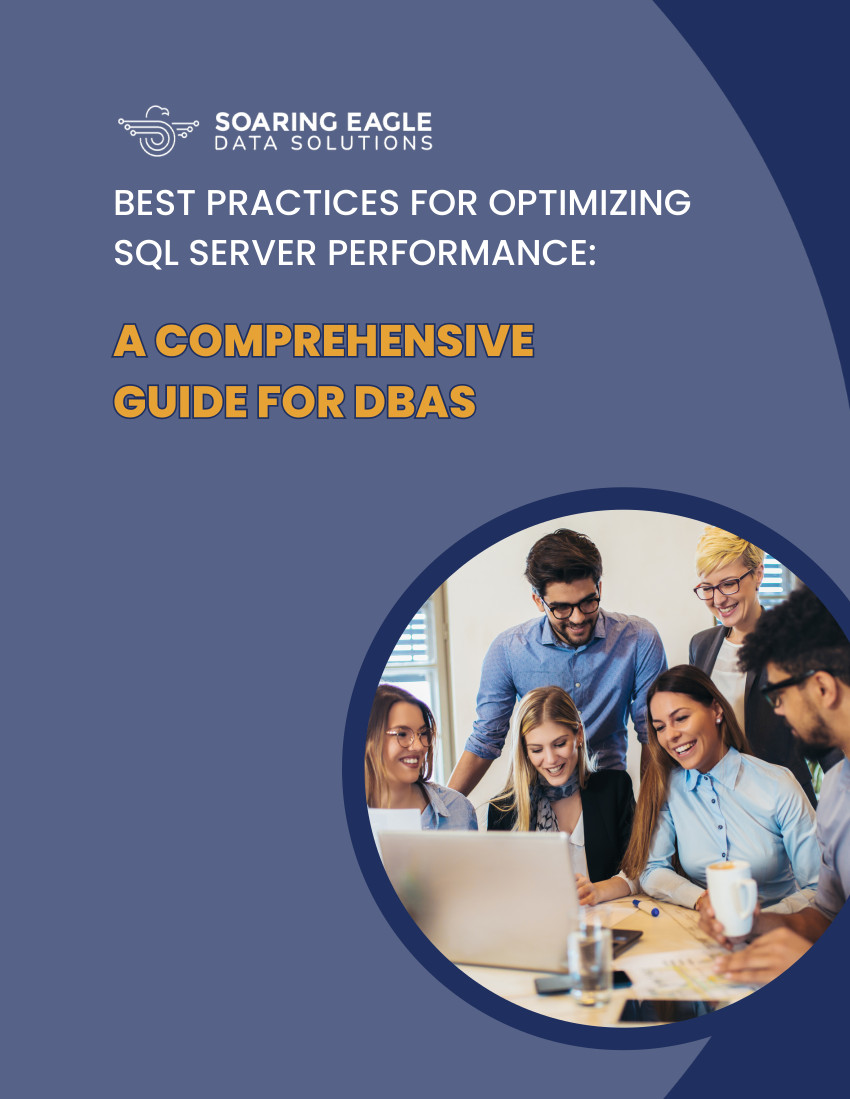
Soaring Eagle Advice Column
If you’re looking for a managed or a remote database provider, you need to know what makes one different from another. What questions should you ask before making a hiring decision?
Below are general guidelines that will help you choose the best remote database provider for your business. That said, always remember to ask for references. Meet a member of their technical team and talk about your issues and what would be the best solutions. Then, start digging in:
1. Do We Have Synergy?
Once you have vetted their technical ability and their customer service through their references, it’s time to vet their business cultural environment:
Will your technical team be able to work well with their DBA staff and account management team?
Is working together with you as a team even on their priority list?
Can you have an honest conversation that is productive?
Does their team understand the nuances and the priorities of your business? For example, you may have a business cycle for deployments and busy cycles that need to be watched carefully. Can their team do this, through automated practices and with personnel?
2. Do They Care About and are They Willing to Learn About Your Business Needs?
Next, ask questions of your remote database provider to reveal how dedicated will they be to you, your business, and your clients.
The DBA staff on the remote managed services team must be as dedicated to you as if they were working in your data center, sharing the joys and helping to alleviate the stress as issues arise. They should also be asking you questions about how your business operates so that they can help you though your busy season(s). You want them to be calm and collected, dedicated to preventing situations and dedicated to fighting the fires as needed.
3. Does Their Ethics Resonate Throughout the Company?
Do your ethics match their ethics? For example, with GPDR, HIPAA, and other regulations growing, is their team already prepared to work with you to handle these delicate issues when it comes to data? Do they already have standards in place that match or exceed your compliance requirements? Do they understand that their personal and corporate ethics messaging, protocols, and implementation matter to you and your clients? They should know how to protect your data and assist with preparations for audits as part of the job.
4. Do I Know What They're Doing?
Does your remote database service provider have tools to show you how healthy your environment is right now? Do they have tools to help root out performance issues, i/o, proper indexing procedures, VLFs, and capacity analysis? Do they communicate their issues and answers to your questions? Do they detect and resolve issues before the issues cause your systems to come to a crawl and cost you money?
Do they have a ticketing system that creates status reports and allows you to see the work effort that is going on for you? Most importantly for you and for them: Are permissions tracked for work that is completed? Do they track details about what server/database table and data was affected by those changes, and who committed those changes? This is very important for new auditing processes.
5. Do They Have Redundancy in Personnel?
Lastly, ask how deep is their bench? What if your primary database caregiver is on vacation, sick, or worse, leaves the job? How does someone else pick up the work where that DBA left off? What if that person gets stuck on an issue they haven’t seen before; what personnel resources are available to help them?
The one thing you do not want in a remote services provider is a single point of failure. No one person can give you 24/7 support. Everyone needs to take care of their personal needs and have some time with family and friends. Therefore, you need to know that your primary DBA has a support system.
Documentation of your systems is critical from a business continuity standpoint. Do your managed service providers have runbooks that they share with you as well so their own team? Is the runbook shared with only the personnel that need to know to access your environment?
Are there established clear methods that allow vital and ongoing information about the state of your environment to be shared, so anyone who is authorized and qualified can pick up a ticket and support your team?
In summary, really meet and talk with the group. Build a relationship with your service provider before signing on the bottom line. Then as the line of business owner, check in to make sure they have kept their promises, are easy for your team to work with, and are worth the investment.
A service provider should be conscientious and should have great account management. They should also have the capacity to provide you with excellent technical abilities for a percentage of the cost of the full-time, around the clock staff.
Contact Soaring Eagle Consulting for Consultation
Fill out a form or give us a call and we will do a free 30-minute database evaluation to identify the root causes of your issues and decide the best way to resolve your problems.
If you see value in the review exercise, start planning to do the cleanup. If possible, schedule it during a slow business season.
There are software and service providers who will do this investigation for you if you don’t have the staff to manage it. You may want to contract out the service.
Contact us today to help clean up your data.



